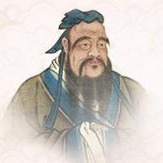Forum explores poetry as educational approach to Confucianism

Launched by the Beijing-based International Confucian Association, a national-level forum was held in Beijing on Saturday on the study and promotion of poetry as an educational approach to Confucianism.
Dozens of scholars specializing in poetry and Confucianism studies attended the forum, which aims to display the significance of poems in the establishment of the ancient Chinese ritual system and moral standards in early history, besides their importance in literature.
Classic of Poetry, or Shijing, which comprises 305 works dating from the 11th and 7th century BC, is generally considered a fundamental collection of poems. It was compiled by the great Chinese educator Confucius as one of the Five Classics.
Experts at the forum considered this tradition means Chinese poetry, which has more rigid rules in its format and themes than its Western counterpart, and plays a crucial role in education, ceremonies and rule in the country.
The forum also explored the similarities between Chinese and Western poems, considering their common function of nurturing people's and enlightenment of psychological strength.
"Due to historical reasons, the tradition of using poems as an education approach has faded in China, and people's understanding of poetry is basically within the field of literature," Zhang Jian, deputy director of the International Confucian Association, said.
"To fully recognize traditional Chinese poems, it's necessary to resume its function in nurturing people's minds if we want to revitalize fine traditional Chinese culture as a whole," he said.
At the forum, scholars from the country's top-tier institutions, like Renmin University of China, the Chinese Academy of Social Sciences, Sun Yat-sen University in Guangzhou and Beijing Foreign Studies University, traced the history of Chinese poetry and explored their educational value for modern society. They also contributed their ideas on how to better publicize traditional philosophy, values, and aesthetics in today's educational system through poetry.





































